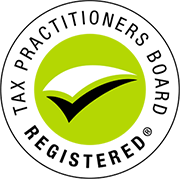05 Sep What should I look for in a bookkeeper?
A bookkeeper is a bit like a GP – there’s one on every corner but great ones are hard to find. And when you do find one, you should never let them go. But how do you know if your bookkeeper is good, or even better, a great bookkeeper?
Training and Accreditation
Every bookkeeper should have some sort of formal bookkeeper or accounting training and preferably be a registered Business Activity Statements (BAS) agent. A registered BAS agent means that the Tax Practitioners Board are satisfied that the bookkeeper has the required skills, qualifications and a minimum amount of experience to correctly account for GST and prepare your BAS according to legislation.
All tax practitioners dealing with the public at large must be registered with the Tax Practitioners Board (TPB), the regulatory body for tax practitioners in Australia. Once registered, the practitioner becomes known as either a ‘BAS agent’ or a ‘tax agent’, depending on the types of services they will provide. For example, a bookkeeper who renders services that deal with your BAS-related liabilities will be registered and known as a BAS agent. This registration process is in place to afford consumer protection to the general public.
So how do you know whether or not a bookkeeper is registered? There are two ways: 
- Firstly, they will have a registration number which can be verified via a public register on the TPB website.
- Secondly, they may display the TPB symbol on their business card,
brochure, website, etc. The symbol looks like this:
What registration means for you is that the BAS agent has satisfied the TPB that they have the following minimum qualifications and attributes:
- They hold qualifications (at least a Certificate IV in bookkeeping or accounting).
- They have experience (normally more than 1400 hours over the past 4 years).
- They are a person of good character and reputation.
- They undergo continuing professional education (CPE).
- They abide by a legislated Code of Professional Conduct.
- They hold professional indemnity insurance to a level specified by the TPB.
Experience
Like most professionals, the less experienced and less qualified bookkeeper will usually be cheaper. But judging bookkeepers by price is fraught with danger. If you’re simply comparing hourly rates, a highly experienced bookkeeper will always seem more expensive. This is not true because most experienced bookkeepers will also work significantly faster and smarter than someone who has less experience.
Reliable
- All the right credentials, doesn’t necessarily guarantee reliability. Look for bookkeepers with a long-standing presence that consistently demonstrates their integrity. Ask them to point to current clients who can provide honest opinions on the timeliness, efficiency, and confidentiality of their services.
- Don’t be afraid to ask a potential bookkeeper how they would handle a financial situation specific to your business.
Organised
- Don’t assume that every bookkeeper is fundamentally organized and detail-oriented! Although it tends to go with the territory, experience plays a huge role in the efficient interpretation, reporting, and retrieval of financial data – especially when there are multiple clients involved.
- Remember that the more streamlined your bookkeeping service’s operations are, the more positive an impact it will have on your bottom line.
Good Communicator
- Some bookkeepers are much better with numbers than they are with people, but the right bookkeeping for your business must be adept at dealing with both.
- Make sure your bookkeeper listens well and explains things in a way that makes sense to you.
- Your business is as individual as you are, and a bookkeeper who adopts a one-size-fits-all approach to communication will be unlikely to meet your needs or expectations.
- Understands Your Industry
- Beyond the day-to-day management of your company’s accounting activities, your bookkeeper should have a solid understanding of the industry you’re in, and how it relates to your specific financial situation.
- The more familiar they are with industry trends and operations, the more likely the bookkeeper is to spot oversights and patterns in your data. And that can prevent reporting errors and help you to capitalize on potential savings.
Prioritises You
- At the end of the day, you need a seasoned bookkeeper who’s willing to work for you.
- Making your business a priority means being respectful of your time, maintaining a proactive approach to communication, and demonstrating the capacity to understand your professional objectives.
Taking some time to investigate their customer service habits and client relations will ensure you choose the bookkeeper most likely to help you meet your financial goals.


